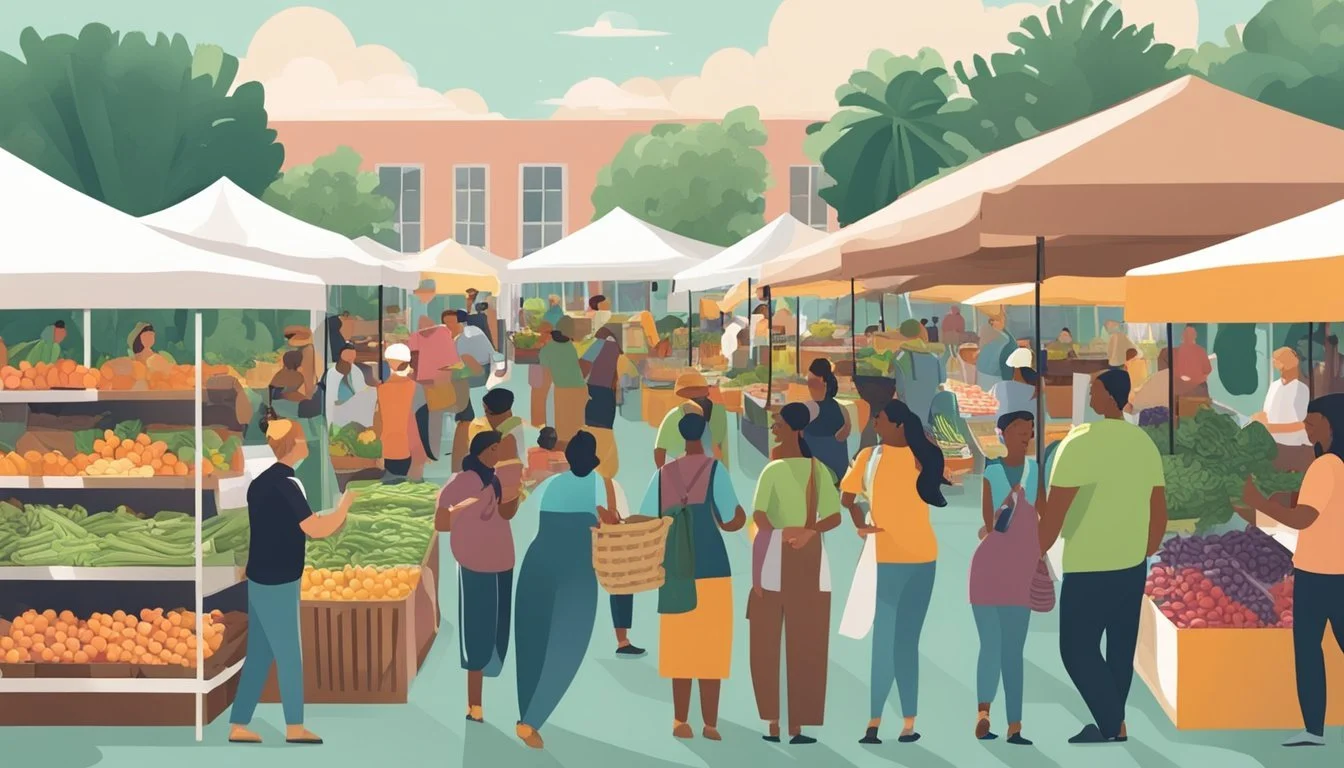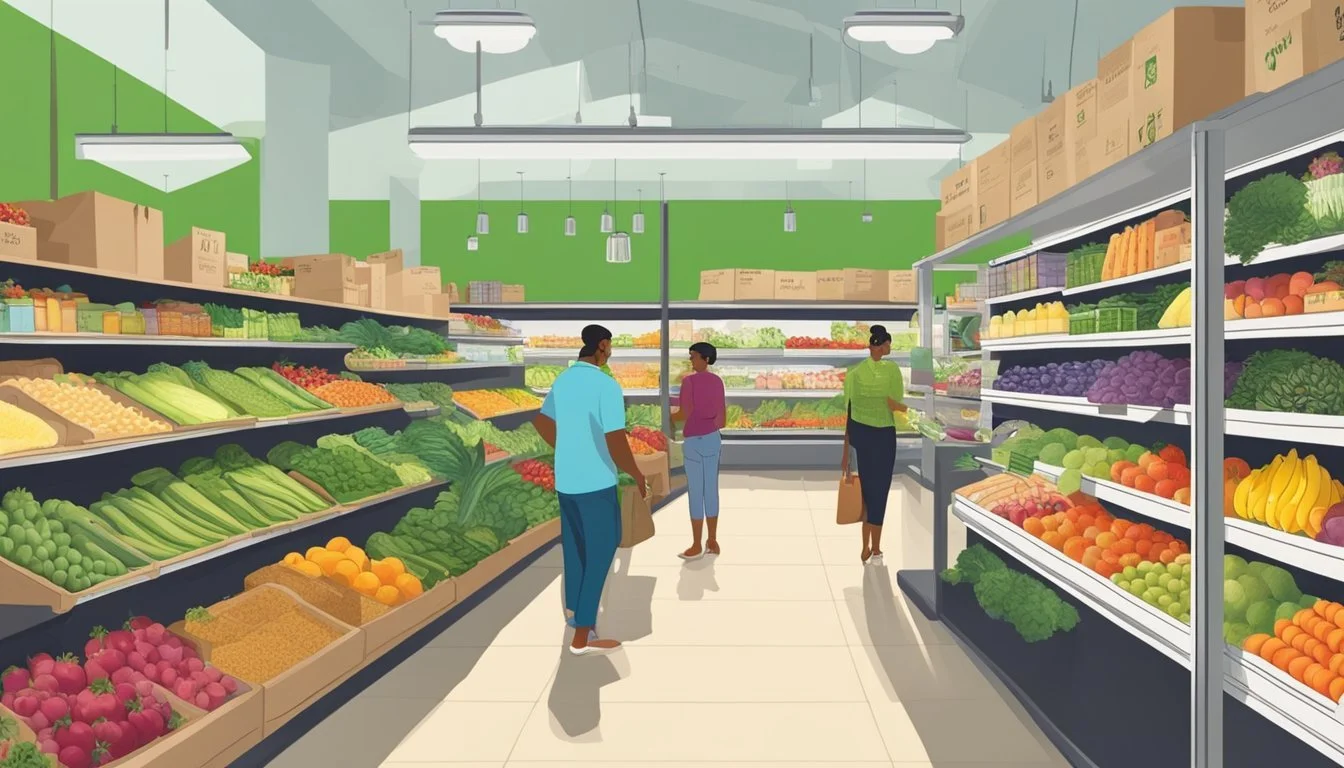Guide to Food Co-Ops in Miami, FL
Your Essential Resource for Local, Community-Sourced Groceries
Miami, Florida, is not just known for its stunning beaches and vibrant nightlife; it's also home to a growing scene of cooperative grocery options, fondly known as food co-ops. These member-owned, member-run entities stand out by providing local, wholesome, and often organic food choices that support nearby small farms and businesses. Through their commitment to community-centric commerce, Miami's food co-ops are foraging paths towards sustainable consumer habits and fostering a sense of connection among local residents and producers.
In the heart of the city and its surrounding neighborhoods, these co-ops function as more than just a place to buy groceries—they are hubs for education and collaboration on food-related issues. They cater to a variety of needs including access to affordable, kosher, nutritious foods, as observed with initiatives like the Miami Kosher Ko-Op. With an emphasis on customer-friendly service, these organizations have established vital relationships with suppliers to offer competitive prices, without compromising on quality or ethics.
For individuals and families alike, the food co-ops in Miami serve as both a practical and ethical choice. They are destinations where members are empowered to make informed decisions about their food, learn about the impact of their purchases on the local economy and environment, and participate in a community-focused shopping experience. Whether it's through a cooperative specializing in a wide array of goods or those taking extra steps to meet specific dietary needs, Miami's food co-ops are redefining the way residents shop for their groceries.
Understanding Food Co-Ops
Food co-ops offer a member-centric approach to grocery shopping and community building. They empower local communities through equitable economic practices and democratic member control.
Co-Op Basics
A food co-op, or cooperative, is a member-owned enterprise that provides grocery items to its members, who are both customers and co-owners of the business. These entities operate on the basis of one member, one vote, ensuring an equal say in decision-making regardless of the amount of capital a member has invested. Typical features of co-ops include:
Member ownership: Individuals who pay a fee to become members own a share of the cooperative.
Democratic control: Each member has an equal voice in major decisions.
Patronage dividends: Profits are often shared with members based on their patronage, not the number of shares they hold.
History and Principles
The modern cooperative movement can trace its roots back to the first successful co-op established in Rochdale, England, in 1844. This history has informed the core cooperative principles:
Voluntary and Open Membership
Democratic Member Control
Member Economic Participation
Autonomy and Independence
Education, Training, and Information
Cooperation among Cooperatives
Concern for Community
These principles guide the operations of co-ops and underline their commitment to member engagement and local community support.
Member Control and Benefits
Members control the co-op through a democratic process, typically electing a board of directors who make larger decisions and setting out policies that benefit the community. The cooperative model offers numerous benefits:
Community Impact: They prioritize local products and community well-being over merely profits.
Economic Benefits: Members receive patronage dividends, reflecting their contribution to the co-op’s success.
Quality and Value: Co-ops are focused on providing high-quality products at a good value to their members.
Advantages of Joining a Food Co-Op
Food co-ops in Miami, FL offer a range of advantages to both community members and local farmers, promoting not just economic benefits, but also fostering healthier lifestyles and community engagement through the access to local and organic produce.
Community Engagement
Food co-ops are more than just grocery stores—they are community hubs where members gather to make decisions and participate in the local food economy. Joining a food co-op provides individuals the opportunity to connect with like-minded community members who are keen to contribute to and alleviate issues like poverty, foster sustainable living, and support local initiatives.
Supporting Local Farmers
By participating in a food co-op, individuals directly support local farmers, ensuring they receive fair compensation for their work. This dynamic keeps the local agricultural scene vibrant and allows consumers to enjoy fresh, seasonally available produce. A vibrant local farming community is critical for preserving agricultural biodiversity and for providing an array of fresh choices.
Economic Benefits
Financial Incentives: Members of food co-ops often enjoy various financial benefits including:
Shopping discounts
Patronage refunds
These incentives help make groceries more affordable. Additionally, food co-ops keep more money circulating within the local economy, which can contribute to the economic resilience of the Miami area.
Quality and Healthy Choices
Food co-ops typically prioritize stocking organic and healthy food options, which are frequently sourced from local farmers and producers. This ensures a selection of high-quality groceries and fresh produce for members. Organic options also align with the needs of health-conscious consumers, providing a diverse range of choices that are not always available in conventional supermarkets.
Shopping at a Food Co-Op
When one shops at a food co-op in Miami, FL, they are participating in a community-focused marketplace that emphasizes quality goods and consumer education. These retail stores often feature a wider selection of locally-sourced, sustainable, and organic products.
Finding the Right Co-Op
Before they begin shopping, consumers should identify which food co-op best aligns with their needs. They may consider factors such as location, product selection, and membership benefits. Some notable food co-ops in Miami include Joanna's Marketplace, Robert Is Here, and Milam's Markets; each offers a unique variety of products and services. Customers can engage with these co-ops through different models, from worker-owned to customer-owned entities.
In Miami, Whole Foods Market and Food Service Co-Op of America are also popular choices, offering extensive product ranges that cater to various preferences and diets. Consumers are encouraged to visit these co-ops to better understand the community and values they support.
Understanding Pricing
Prices at food co-ops can differ from conventional grocery stores. Members often receive discounts, and some co-ops offer further savings during special shopping days or through a membership fee. For instance, East End Food Co-op advertises a membership structure whereby a $100 membership fee translates into a 2% discount on purchases. Throughout the year, members might also be entitled to additional savings, such as 10% off during periodic shopping events.
Non-members can still shop at co-ops, but they might pay regular retail prices. Co-ops are devoted to fair pricing and typically reinvest profits back into their establishments and local communities. Understanding the pricing at these co-ops helps consumers shop smartly while supporting a business model that prioritizes collective benefits over individual profits.





